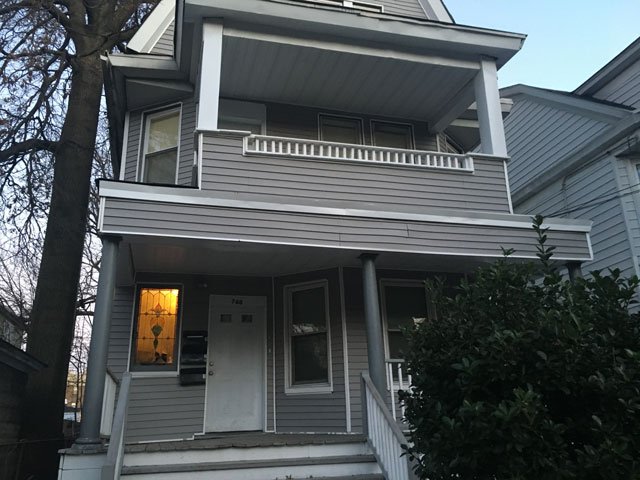NJ Says No To NYC Program That Relocated Homeless To NJ
Jan. 16, 2020, 4 a.m.
“You just can’t send people to Newark, give them a check for a year and say you’re on your own. What happens after that?” Mayor Ras Baraka asked.

A program that has moved several thousand families from New York City homeless shelters and into their own homes is facing an uncertain future.
Back in 2017, the de Blasio administration introduced the Special One Time Assistance (SOTA) program, paying 12 months of rent upfront to landlords in and outside the city willing to house the homeless. In the first two years, the majority of the 5,074 families who used the program moved outside the city, many to neighboring counties in New Jersey, sparking a backlash from leaders across the Hudson.
“New Jersey can’t be viewed as sort of ‘Gosh, we can’t figure out what else to do with them, so we’ll send them to Jersey,’ with a limited life line,” Governor Phil Murphy said on Ask Governor Murphy, a co-production on WNYC, WBGO, and WHYY, last week. “That’s not right.”
The tension over the program resulted in a lawsuit filed last December by the city of Newark, where 1,198 SOTA families moved, which argues the program has created a public nuisance. Jersey City later joined the lawsuit.
“You just can’t send people to Newark, give them a check for a year and say you’re on your own. What happens after that?” Mayor Ras Baraka recently told WBGO.
In response to the influx of new residents, Newark also passed an ordinance late last year. It puts strict restrictions on landlords who want to rent to people who receive government assistance and prohibits bringing “needy” people to Newark.
Listen to Mirela Iverac's story on WNYC:
After the lawsuit was filed, Mayor Bill de Blasio said Newark’s actions amounted to “demonizing the poor,” and that, with 60,000 people in the New York City homeless shelter system, it was necessary to look for affordable apartments outside the five boroughs.
But the argument that the program is helping families has been undermined by the way it has been executed. Some families who relocated ended up in apartments that had numerous housing code violations, lacked heat, were infested by insects and vermin, and didn’t have valid occupancy certificates, as first reported by Gothamist/WNYC in 2018. The city’s own Department of Investigation concluded that some SOTA families “were living in squalor under the roofs of unscrupulous landlords, who collected tens of thousands of dollars in rental payments upfront from the city.”
Both sides in the lawsuit are due in court next week for a settlement conference.
Kenyatta Stewart, Newark’s corporation counsel, said in a statement that they were engaged in ongoing negotiations with New York to resolve the lawsuit. Isaac McGinn, a spokesman for New York City’s Department of Social Services, declined to provide any specifics and only said they’re continuing to work “with our regional partners to strengthen the program over the negotiations process in hopes of finding lasting solutions to our regional housing crisis.”
In the meantime, the city has stopped sending families to Newark and has made changes to the program. Starting next month, landlords in the program will receive monthly payments instead of a lump sum payment upfront.
SOTA families caught in this power struggle have had varying reactions to the program, largely dependent on their personal experiences. Jarvis Cureton and his family relocated to an apartment in Newark with a lot of problems: lack of heat, exposed outlets, leaking sink.
“I really feel like New York should find a much better solution with the homeless.” he said.
But Doris Jenkins, who also moved to Newark, said she saved up money during that first year. Now that the program has expired she lives in an apartment in Irvington, which she pays herself.
“To me, the program was good,” she said. “I appreciated it.”